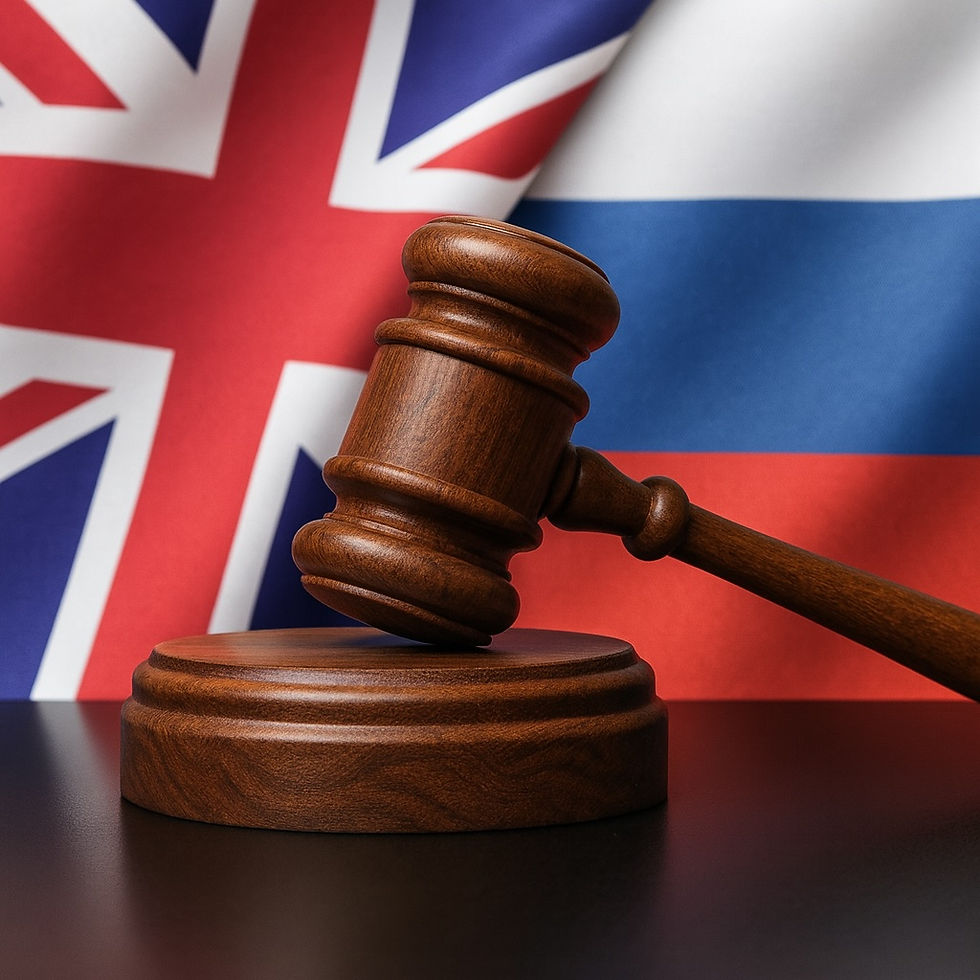Why NEDs Must Do Their Own Due Diligence...Before They Take On The Role
- Corinna Venturi

- Nov 4, 2025
- 4 min read

Non-Executive Directorships (NEDs) are often seen as the perfect next chapter in a successful career. You’ve built up years of experience, have the connections, and still want to stay engaged in business, just without the grind of daily operations. For many, a NED role offers purpose, influence, and the satisfaction of helping steer a company in the right direction.
But here’s the catch: stepping into a board seat without doing your own due diligence on the company, its ownership, and its regulatory obligations can leave you personally exposed...even criminally liable in some cases.
Why It Happens
It’s easy to see how this occurs. A retired CEO is invited onto a board by a trusted former colleague. The business looks legitimate, the people are polished, and the opportunity feels flattering. There’s often little time or appetite for a deep dive into the company’s structure or beneficial ownership, especially when the appointment comes via professional networks.
But as sanctions, corporate transparency rules, and cross-border enforcement continue to tighten, the days of “blind trust” are over.
When Things Go Wrong
Let’s take a few (fictional but realistic) examples:
The Sanctioned Shareholder:
A NED joins a property holding company, unaware that its ultimate beneficial owner, a foreign national, is later added to the UK sanctions list. Months pass before anyone realises, and by then the company has made dividend payments that technically breach UK sanctions. The NED, as a director, is questioned by authorities and faces reputational damage despite having no operational control.
The Crypto Investment Scheme:
A NED accepts a board position on what appears to be a fintech start-up. The company’s investment flows are opaque, and the firm later becomes the subject of an FCA investigation for promoting unregistered crypto assets. The NED is drawn into enforcement correspondence and struggles to demonstrate that they had exercised appropriate oversight.
The Family Office Trap:
A family office set up for an ultra-high-net-worth individual invites an experienced financial professional to sit on the board of its offshore entities. Only later does the NED discover that the structure is designed to move assets away from jurisdictions with pending tax investigations. “I didn’t know” is not an acceptable defence when you are listed as a director.
In all these cases, the problem isn’t the NED’s intention, it's the lack of pre-appointment due diligence.
Understanding The Legal Reality
It’s a common misconception that NEDs are shielded from personal liability because they don’t manage the day-to-day affairs of a company. In truth, UK law makes no distinction in legal duty between executive and non-executive directors. Under the Companies Act 2006, all de jure directors, whether executive or non-executive, owe the same statutory duties to the company. These include the duty to promote the success of the company, to exercise independent judgment, to avoid conflicts of interest, and to exercise reasonable care, skill, and diligence.
The only difference lies in how these duties are applied. Courts recognise that non-executives are not involved in day-to-day management, but they are still expected to exercise oversight, ask questions, and satisfy themselves that the company’s controls and governance are sound. As emphasised in the case of Equitable Life Assurance Society v Bowley, and other cases, every director, executive or not, has a continuing duty to maintain sufficient knowledge of the company’s business to enable them to discharge their responsibilities properly.
Failure to do so can have severe consequences. NEDs can be held personally liable for breaches of duty, disqualified under the Company Directors Disqualification Act 1986, or implicated in offences under insolvency or sanctions law if they fail to take reasonable steps to prevent misconduct. The position is even riskier where a NED has been appointed through informal or offshore arrangements, as they may inadvertently become a de facto or shadow director, carrying the same duties and liabilities without even realising it.
Simple Checks Every NED Should Do
Even before engaging external support, there are basic checks you can do yourself which can reveal red flags:
Understand the ownership chain — who ultimately owns or controls the company? Check the shareholder structure on Companies House or the relevant jurisdictional registry.
Look at the accounts — go through the financials. If you're not sure what to look for, ask an independent accountant.
Screen the names — run the company, its directors, shareholders, and parent entities through free or paid sanctions/adverse media tools (e.g. OFSI list or reputable licensed databases (if available)).
Look for regulatory oversight — is the firm regulated? If not, should it be? Lack of compliance infrastructure is a red flag.
Ask about legal advice — if the entity’s advisers are justifying risk exposure based on narrow interpretations, get independent verification.
Check the company’s professional service providers — which law firms, auditors, and corporate service providers are involved? A history of switching advisers can indicate deeper issues.
When To Get Professional Help
For higher-risk or cross-border structures, particularly involving family offices, offshore entities, or politically/reputationally exposed clients, an independent due diligence review can be invaluable.
At Coventium, we specialise in conducting discreet pre-appointment checks that go beyond basic screening: deep-dive review of ownership structures, identifying hidden control relationships, and assessing exposure to sanctions or money-laundering risks. We also partner with KJF Accounting Limited to ensure fully qualified professional analysis of company accounts.
If you’ve been offered a NED position and want to ensure the company passes the right tests before your name goes on the board, we can help you make that decision with confidence.
References:
Companies Act 2006 (duty to promote the success of the company (see section 172), to exercise independent judgment (see section 173), to avoid conflicts of interest (see section 175), and to exercise reasonable care, skill, and diligence (see section 174)): https://www.legislation.gov.uk/ukpga/2006/46/contents
Equitable Life Assurance Society v Bowley [2004]: https://www.casemine.com/judgement/uk/5a8ff7b860d03e7f57eb181b
Company Directors Disqualification Act 1986: https://www.legislation.gov.uk/ukpga/1986/46/contents



Comments